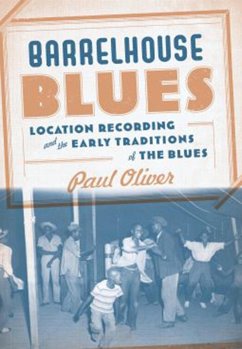Eminent blues historian Paul Oliver uncovers these folk traditions and the circumstances under which they were recorded, rescuing the forefathers of the blues who were lost before they even had a chance to be heard. A careful excavation of the earliest recordings of the blues by one of its foremost experts, Barrelhouse Blues expands our definition of that most American style of music.
Dieser Download kann aus rechtlichen Gründen nur mit Rechnungsadresse in A, B, BG, CY, CZ, D, DK, EW, E, FIN, F, GR, HR, H, IRL, I, LT, L, LR, M, NL, PL, P, R, S, SLO, SK ausgeliefert werden.
Hinweis: Dieser Artikel kann nur an eine deutsche Lieferadresse ausgeliefert werden.


